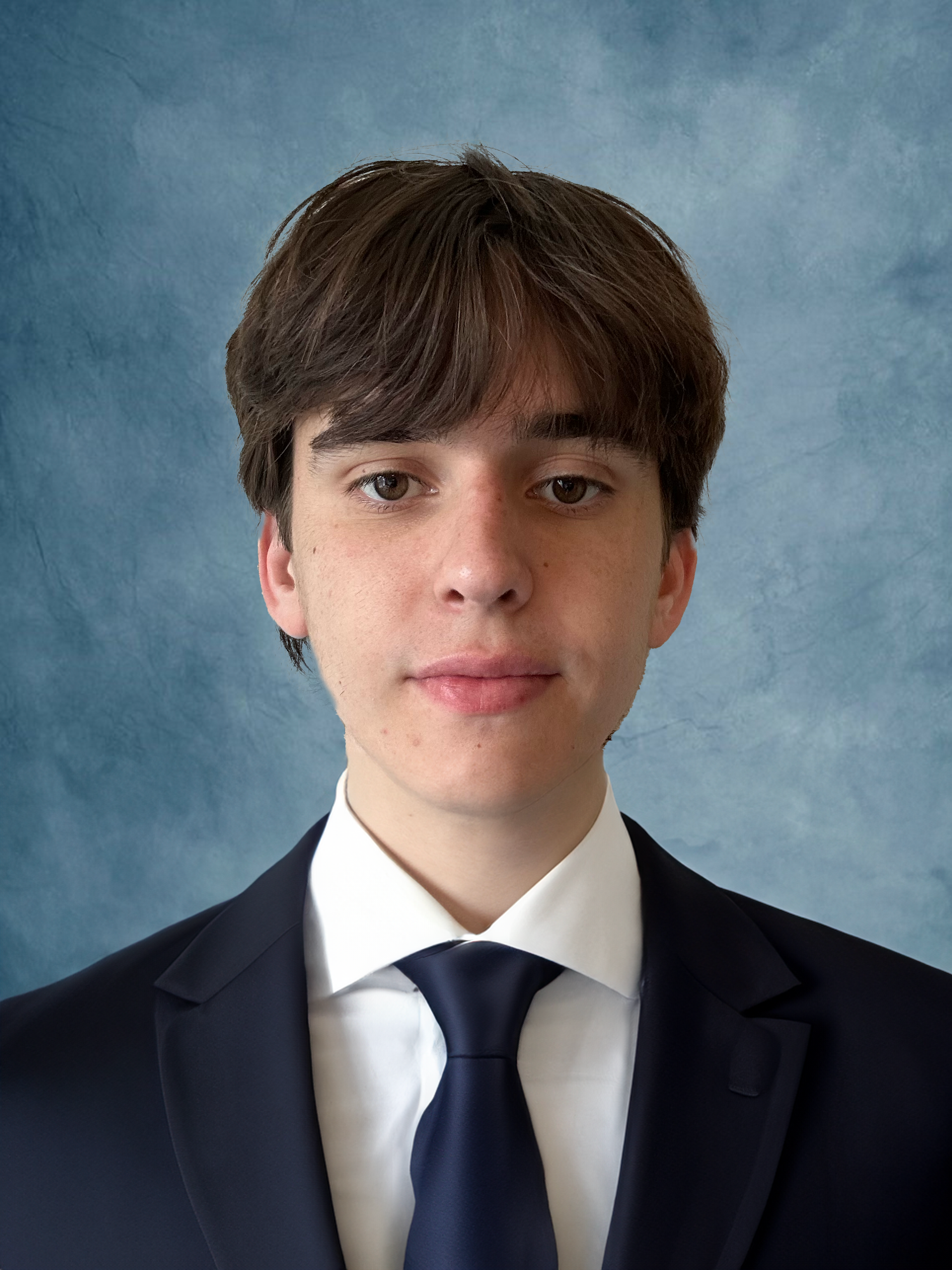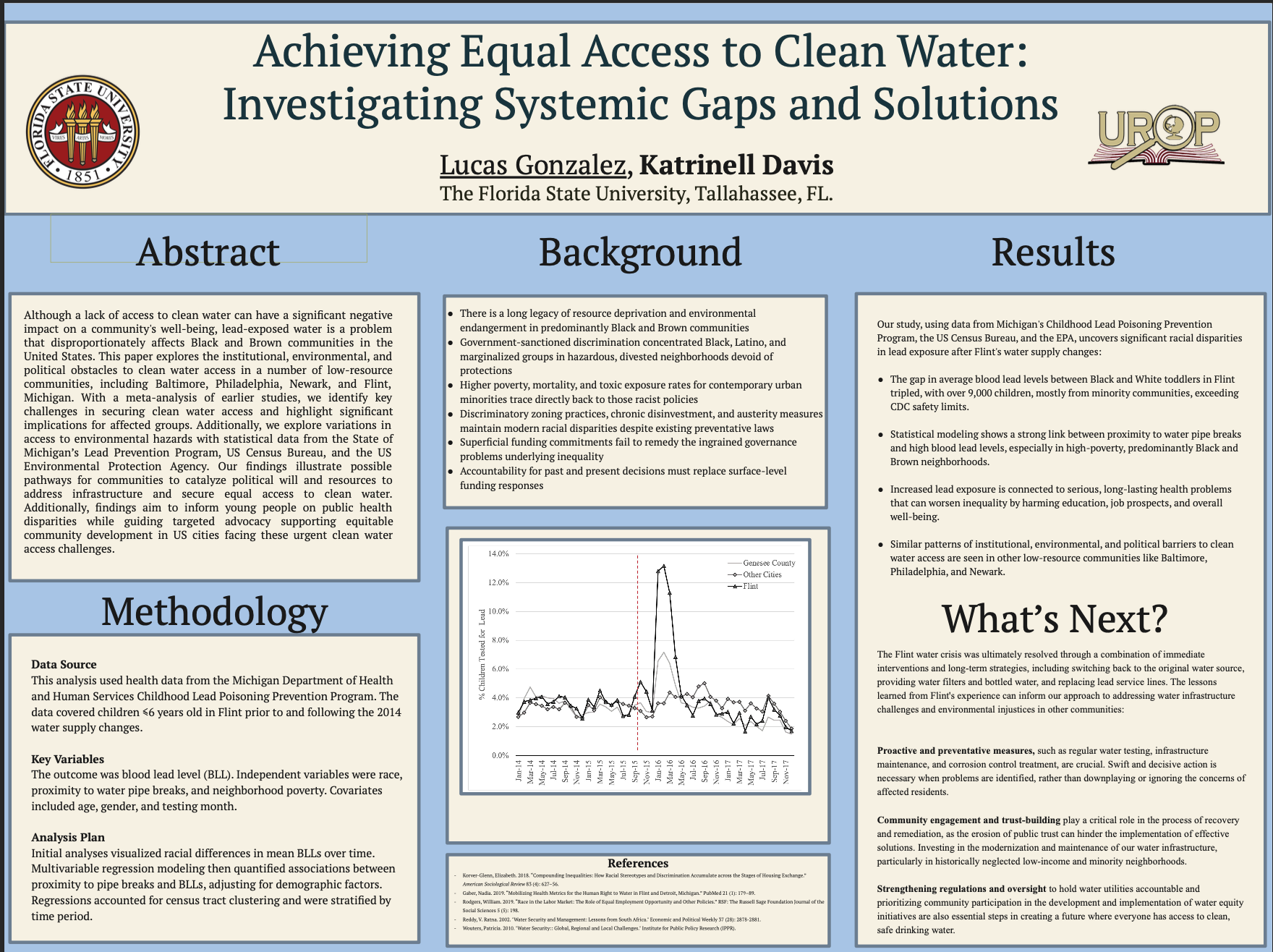Research Symposium
24th annual Undergraduate Research Symposium, April 3, 2024
Lucas Gonzalez Poster Session 3: 1:30 pm - 2:30 pm /254

BIO
Hello! My name is Lucas Gonzalez, and I am proud to call Miami, Florida my hometown. Growing up in such a vibrant and culturally diverse city has profoundly shaped my perspective and ignited my interest in understanding the complex dynamics between citizens and the state. My research goals lie at the intersection of political science, sociology, and public policy. Through my academic pursuits, I aim to develop a comprehensive understanding of the intricate relationships between governments, institutions, and the people they serve. My ultimate career goal is to work within the realm of policy-making and advocacy, either in the United States or Germany. I aspire to be part of a generation that prioritizes collective decision-making, ensuring that the voices of all individuals are heard and considered.
Achieving Equal Access to Clean Water: Investigating Systemic Gaps and Solutions
Authors: Lucas Gonzalez, Katrinell DavisStudent Major: International Affairs
Mentor: Katrinell Davis
Mentor's Department: Department of Social Sciences and Public Policy Mentor's College: College of Sociology Co-Presenters:
Abstract
Although a lack of access to clean water can have a significant negative impact on a community's well-being, lead-exposed water is a problem that disproportionately affects Black and Brown communities in the United States. This paper explores the institutional, environmental, and political obstacles to clean water access in a number of low-resource communities, including Baltimore, Philadelphia, Newark, and Flint, Michigan. With a meta-analysis of earlier studies, we identify key challenges in securing clean water access and highlight significant implications for affected groups. Additionally, we explore variations in access to environmental hazards using statistical data from the State of Michigan's Lead Prevention Program, the US Census Bureau, and the US Environmental Protection Agency. Our findings illustrate possible pathways for communities to catalyze political will and resources to address infrastructure and secure equal access to clean water. Additionally, findings aim to inform young people about public health disparities while guiding targeted advocacy supporting equitable community development in US cities facing these urgent clean water access challenges.
Keywords: Water Inequality Flint Public Health


